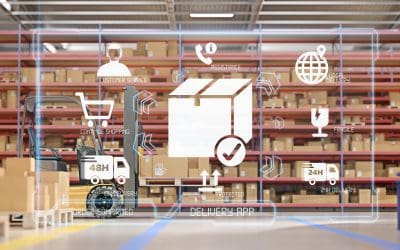
The Pandemic is Declared Over… But is it Really?
It’s been a little over two years since the WHO declared Covid-19 a global pandemic, and though it has technically been declared over, the effects of the supply chain pandemic are still being felt throughout the world in various ways. The supply chain distributions occurred at every level, from production and manufacturing all the way to last mile delivery. This has had a ripple effect on businesses and consumers alike.
Let’s look at some key implications and lasting effects of the pandemic on the supply chain, last mile deliveries, consumers, and businesses.
The Pandemic Has…
Exposed the Weaknesses in Global Supply Chains
Many companies were caught off-guard by the sudden drop in demand and distribution to the supply chain. The supply chain pandemic forced companies to re-evaluate their channels and find ways to make them more efficient and less vulnerable to disruptions. It means looking at the entire chain from end to end and identifying weak links. Businesses must now emphasize flexibility and resilience in their supply chains more than anything else.
Accelerated the Shift to Digitization and eCommerce
The pandemic has had a major impact on the way businesses operate. Many companies have shut down their physical operations due to lockdowns and restrictions. This has led to a sharp increase in online sales and a corresponding increased demand for eCommerce and digital solutions.
The supply chain disruptions also exposed many weaknesses in traditional supply channels. The most glaring example is the so-called “last mile problem,” where goods often get stuck in traffic or are delayed due to a lack of resources. Businesses are shifting to digital solutions to streamline transactions, plan and manage distribution, and sharpen analysis.
Changed Consumer Behavior
Frequent lockdown and recession significantly changed consumers’ priorities and spending habits. Most people shifted to buying essential home items over luxuries and moving away from single-use products. For example, food and cleaning supplies sales went up as people stocked up their homes for lockdown. This trend will likely continue, meaning businesses must leverage conscious consumption analysis and strategies in their supply chain.
Led to an Increase in Home Delivery and Click-And-Collect Orders
The supply chain pandemic has driven an increase in home delivery and click-and-collect orders as consumers seek to avoid going to the store. With more consumers shopping online, there is a greater need for efficient and reliable last mile delivery. This has led to an increase in the number of businesses offering last mile delivery services and a corresponding increase in competition.
Created New Challenges for Businesses
The pandemic has created new challenges for businesses, from managing supply chain disruptions to dealing with changing consumer behavior. However, it has also created opportunities for businesses that can adapt and innovate.
It’s Not Over Until It’s Over
Though the pandemic has technically been declared over, the effects of supply chain disruptions are undoubtedly felt worldwide. Businesses and consumers alike are still grappling with the fallout from the pandemic, and things will take some time to return to normal. In the meantime, businesses need to continue to adapt their operations to meet the challenges posed by the pandemic.
Sources
https://unctad.org/news/global-e-commerce-jumps-267-trillion-covid-19-boosts-online-sales
https://www.mckinsey.com/capabilities/risk-and-resilience/our-insights/covid-19-implications-for-business







